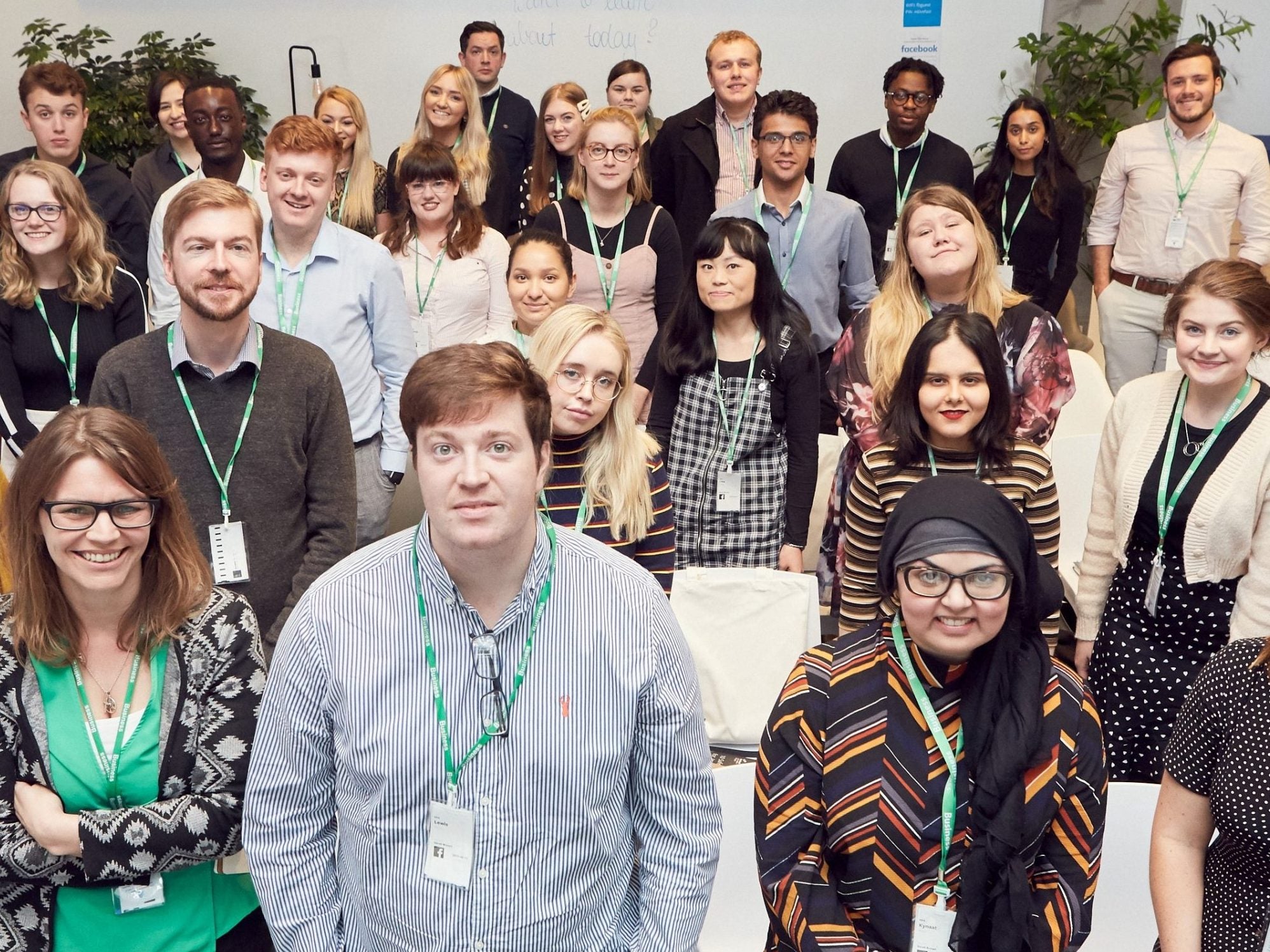
Facebook’s cohort of community reporters have continued working during the Covid-19 pandemic, helping to keep local groups connected during the crisis and reaching under-served sections of their communities.
Facebook launched the Community News Project (CNP) in late 2019, donating a £4.5m fund to the National Council for the Training of Journalists to help boost local journalism in the UK.
The fund was a response to concerns that Facebook, together with Google, has been squeezing the news media by competing for digital advertising spend – an area where the two operate as an effective duopoly.
[Read more: Facebook community news project officially launches with full list of ‘under-served’ locations for 82 reporters]
The local news industry has been struggling over the last few years with staffing cuts and title closures, much of it the result of digital disruption. The situation has only worsened during the Covid-19 pandemic.
Since the scheme first started it has placed 112 reporters at 83 positions across 76 local and regional newsrooms across the UK. Some 69% of the reporters met one or more of the diversity criteria set at the project’s start, coming from backgrounds often underrepresented in the media.
After a pilot year in which reporters had over 170 breaking news stories in UK local papers and 80% of reporters had bylines on print front pages or website homepage leads within their first three months, Facebook announced in November that it would be investing a further £2.5m into the CNP to extend the programme for another year.
It is currently expecting more recruits to come onboard later in the year as part of this recent extension.
Natasha Meek, now a digital journalist at The Press in York, praised the community reporter role, which she formerly held at the Bradford Telegraph and Argus, for bringing journalists closer to the community.
“From fighting for unpaid student nurses in the pandemic to sitting down for virtual Iftaar with community leaders of all faiths, the role is an ode to traditional patch journalism that allows journalists to not only report on their city or town but become a part of it,” she said.
“Being a community reporter was more than just a job to me, you become a part of the city’s hustle and bustle with your contacts reaching every street corner of the patch. If I didn’t know a person, I knew someone – or several people – who did.”
[Read more: Facebook rolls out local news section for UK users]
The Community News Project and the work of its reporters has taken on a new sense of importance since the start of the Covid-19 pandemic.
Meek said that when Bradford was “damaged not only by grief but loneliness, food poverty, youth unemployment and mental struggles,” the role became “more important than ever” as closed gyms and community spaces meant that “many teenagers were vulnerable to gang crime or drug taking and dire levels of poverty left many feeling isolated and stuck.”
A year into the pandemic she had made contact with important local figures, from MPs to food parcel volunteers and doctors, and was able to cover previously undocumented topics through building trust with contacts and standing alongside communities.
Meek urged “anyone passionate about empowering communities” to apply for a role as a Facebook CNP reporter, saying: “it will be one of the best things you ever do.”
The pandemic also changed how CNP reporters Jessica Molyneux and Lisa Rand, both at the Liverpool Echo, went about building contacts on their patches and sharing news, with social media playing a key role.
[Read more: Facebook and Google both say they will give news media more support in next five years]
Molyneux said: “Prior to the first lockdown myself and Lisa were out on patch building contacts and doing interviews face to face, but what was beneficial was the fact we had also established strong hyperlocal Facebook groups to keep connected to contacts and continue to build more.”
She added that without the power of social media “many important stories would have gone untold” and that the Facebook groups helped them to “disseminate as much information to local residents as possible and try to keep people connected while we were all kept apart”.
Gurjeet Nanrah, who wrote about local communities in Nottinghamshire, agreed. He said: “The conversation around journalism goes hand-in-hand with social media. It’s a tool that’s vital to the job nowadays and I’ve realised that in my work every day.”
Having the social media giant “also recognise this parallel” enabled Facebook’s community journalists to report on certain communities that would otherwise not have been covered in as great a scope”, he said, pointing to Nottingham’s student, rural and ethnic minority groups.
He said the community reporter role was “more than an ideal role” to spark his journalism career,” and led him to his current job as a Life Writer across Reach-owned local news websites Lincolnshire Live, Derbyshire Live and Nottinghamshire Live.
Picture: Facebook
Email pged@pressgazette.co.uk to point out mistakes, provide story tips or send in a letter for publication on our "Letters Page" blog
